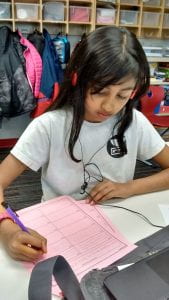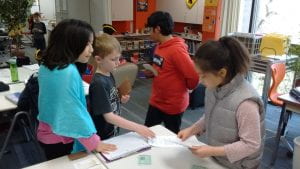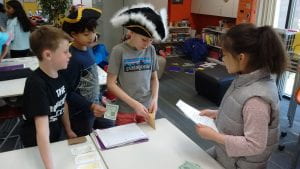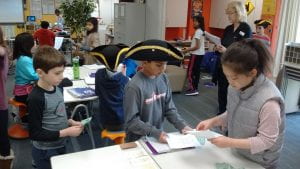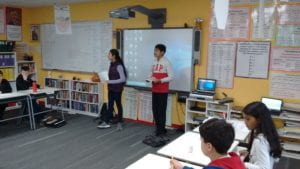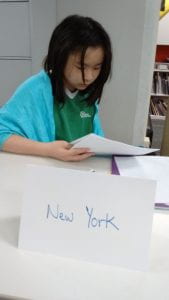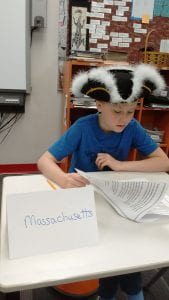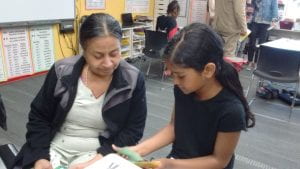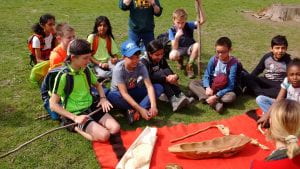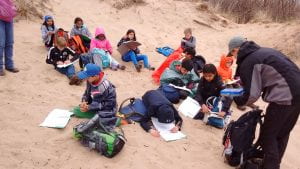This week, the students were introduced to the definition and structure of an expository essay. They were read quality examples of essays written by students from previous years. Each child was allowed to select a topic from the American Revolutionary period, such as: What happened during the Boston Massacre? Who was King George III? What was Shay’s Rebellion? They then had to establish a thesis statement and four to six main points of discussion. Some students have started organizing their ideas on their pre-writing planners.

